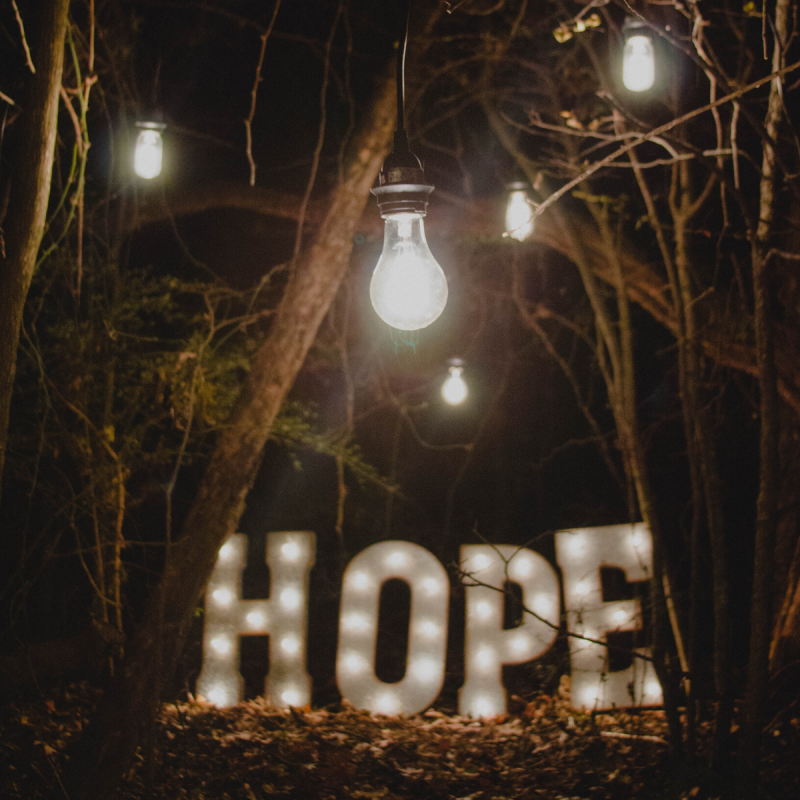By Shaely Ritchey
“Hope is the thing with feathers
That perches in the soul,
And sings the tune without the words
And never stops at all.
And sweetest – in the Gale – is heard –
And sore must be the storm –
That could abash the little Bird
That kept so many warm –
I’ve heard it in the chillest land –
And on the strangest Sea –
Yet – never – in Extremity,
It asked a crumb – of me.”
― Emily Dickinson
As we approach the time of year when we focus on raising awareness for eating disorders, many conversations will be held about what work there is left for us to do to create needed change around how we treat eating disorders in Canada and elsewhere. There have been many steps forward when it comes to supporting individuals and families struggling with these conditions, but there is still a great deal that needs to change in our healthcare system and the wider culture when it comes to our relationship with food, our bodies, as well as how we talk about and treat mental illness. To look at the work that is left before us as a country and in our communities can feel daunting at times, even impossible. It parallels the way in which recovery can seem impossibly far away if we are looking at the end goal instead of focusing on the single step before us. Change is often slow, confusing, painful… and possible. Always possible. It is hope that takes us towards what is possible and it is hope that is the most important thing to nourish and hold onto when we talk about creating change.
 In my own life, I feel as though I have had consider the topic of hope from different angles – as a patient, a professional, and an advocate for mental health and eating disorders. In my own journey, there have been many times when hope has felt impossibly far away, a foreign concept that is hard to imagine. And yet, it was always with me even if I had a limited sense of it. It was Alexander Pope who said, “hope springs eternal in the human heart.” In darker times this phrase to me seemed off base – it did not capture what I felt when depression took hold and a different life seemed far away. But even if I could not see it in the moment, hope was always with me. It was in the act of getting up every morning and continuing on when it felt impossible, in each choice to try again, in those who supported me, and in each small step I took towards change. Like the smallest seed planted deep within the soil, I may not have had a sense of it, but its roots were reaching, slowly unfurling under the soil until it became more present again – in bloom so to speak. While it made it more challenging, I didn’t necessarily have to have a sense of hope as a clear image. I only needed to remain curious and open to the possibility of change, and hope could grow from there.
In my own life, I feel as though I have had consider the topic of hope from different angles – as a patient, a professional, and an advocate for mental health and eating disorders. In my own journey, there have been many times when hope has felt impossibly far away, a foreign concept that is hard to imagine. And yet, it was always with me even if I had a limited sense of it. It was Alexander Pope who said, “hope springs eternal in the human heart.” In darker times this phrase to me seemed off base – it did not capture what I felt when depression took hold and a different life seemed far away. But even if I could not see it in the moment, hope was always with me. It was in the act of getting up every morning and continuing on when it felt impossible, in each choice to try again, in those who supported me, and in each small step I took towards change. Like the smallest seed planted deep within the soil, I may not have had a sense of it, but its roots were reaching, slowly unfurling under the soil until it became more present again – in bloom so to speak. While it made it more challenging, I didn’t necessarily have to have a sense of hope as a clear image. I only needed to remain curious and open to the possibility of change, and hope could grow from there.
As a professional working in the healthcare system and an advocate seeking to create change within it, I am often in the position of offering hope to others or providing comfort in its seeming absence. I thank my own experiences for understanding how precious this role is. In this work, my perspective on hope shifts from a smaller, personal view, to a broader sense of it – both its importance and what makes it a challenge to hold onto. Change within systems such as healthcare is slow and when it comes to eating disorders and related mental health struggles, it feels even slower (even when it is obvious change that is needed and people are suffering without it). This is often frustrating. It is painful to feel the constraints of systemic limitations, failures, and gaps in care where people fall through the cracks all too often. This feels all the more present with eating disorders where there is limited research, innovation, funding, and services available for those who desperately need support as well as a great deal of stigma that persists. So much needs to change, which is why this time of year when we collectively raise our voices to speak to these issues, is so critical. As patients, families, professionals, advocates, organizations, and service providers, our voices together push to create the change that is needed. It is so important to raise awareness, but I think it is most important to do this in the context of hope.
 This past decade there have been a number of recommendations, calls to action, and some significant steps forward in treating eating disorders in this province. Still, many things haven’t moved forward in years and many of the recommendations that exist on paper do not exist in practice and it is patients and families that suffer for it. The thing is, eating disorders are not a selective issue, they can and do affect anyone, and treatment often does not reflect the diversity of experiences that people with eating disorders have. There is still a great deal of stigma and misunderstanding surrounding these conditions, which again makes it hard for people to access the support they need. Eating disorders are often associated with other mental health conditions, and they have serious, potentially fatal, consequences. In the past few months alone, I personally know of several individuals who have been lost unnecessarily or struggled to gain access to sufficient, appropriate, and timely support. Harder still, I imagine every person reading this can think of others we have lost from our communities or who are still struggling to access support. All of this can weigh heavily on us when we look at change and how possible it feels on an individual or systems level. Which is why when we are fighting to create change, it is so important to be kind to ourselves, to look at the next step before us if the whole picture is too overwhelming to face, to acknowledge the heaviness of this work, and to always come back to hope and the things that nourish it for us. Because change is possible, and recovery is possible. Because human beings are resilient, tenacious, and capable. Because there is always hope, whether it is a thing with feathers, a single step forward, or a buried seed deep within the soil.
This past decade there have been a number of recommendations, calls to action, and some significant steps forward in treating eating disorders in this province. Still, many things haven’t moved forward in years and many of the recommendations that exist on paper do not exist in practice and it is patients and families that suffer for it. The thing is, eating disorders are not a selective issue, they can and do affect anyone, and treatment often does not reflect the diversity of experiences that people with eating disorders have. There is still a great deal of stigma and misunderstanding surrounding these conditions, which again makes it hard for people to access the support they need. Eating disorders are often associated with other mental health conditions, and they have serious, potentially fatal, consequences. In the past few months alone, I personally know of several individuals who have been lost unnecessarily or struggled to gain access to sufficient, appropriate, and timely support. Harder still, I imagine every person reading this can think of others we have lost from our communities or who are still struggling to access support. All of this can weigh heavily on us when we look at change and how possible it feels on an individual or systems level. Which is why when we are fighting to create change, it is so important to be kind to ourselves, to look at the next step before us if the whole picture is too overwhelming to face, to acknowledge the heaviness of this work, and to always come back to hope and the things that nourish it for us. Because change is possible, and recovery is possible. Because human beings are resilient, tenacious, and capable. Because there is always hope, whether it is a thing with feathers, a single step forward, or a buried seed deep within the soil.
In this season of raising awareness for eating disorders, I hope we can all take the time to nourish our individual and collective sense of hope amidst calls for needed change. To watch that sense of hope flourish and grow and to always keep fighting for it.

Shaely is a registered nurse with interest in further education in nursing or medicine. She is also a passionate mental health advocate in her community. In her spare time she loves taking photographs, getting outdoors, and petting as many dogs as she can.